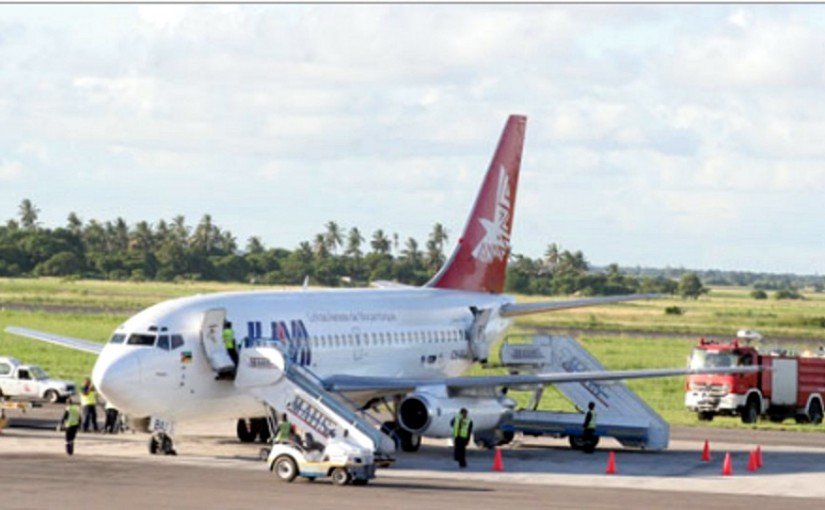Mozambique: Government hires consultant to monitor purchase of LAM shares
EU flying ban: Mozambique seeks to eliminate the causes of mistrust

File photo
The Institute of Civil Aviation of Mozambique (IACM) says that it is working to reduce the deficiencies responsible for Mozambique’s airlines remaining on the European Union (EU) blacklist and therefore unable to fly to or over Europe.
Rssponding to the recent publication of the list of companies barred from flying in Europe, IACM director Joao de Abreu said that the country had the human and technical resources needed to reduce non-conformities to the internationally required level.
In 2007, International Organization for Civil Aviation (ICAO) inspectors visiting Mozambique detected 660 non-conformities on a list of more than 1,200 items checked. The minimum level required is 60 percent conformance.
Joao de Abreu said that much work had been done since 2007 to remove the country from the EU blacklist.
“What is needed, and what we are already doing, is complex work involving human resources, infrastructure, legislation, even air carriers themselves. This is being done and we hope that in the next ratings we will see our situation improve,” de Abreu said, but was however cautious when asked when domestic airlines would in fact leave the blacklist.
While acknowledging that Mozambique’s presence on the EU blacklist hurt national pride, de Abreu said he believed that the primary concern of the Mozambican authorities was to ensure that every passenger, “wherever he or she comes from”, was transported safely, with all the required standards observed.
Prerequisites for leaving the EU blacklist include authorities having the appropriate tools in terms of law, rules, regulations to satisfy international air safety requirements. State must score more 60 percent of the international average on the implementation of ICAO and other international regulatory agency requirements. The state must also have the ability to supervise and control airline operator licenses.
“In Mozambique’s case specifically, the aviation law approved after March this year was not examined in this latest EU assessment. We look forward, however, to the European body examining it in November and telling us what level we are at,” the IACM director said.













Leave a Reply
Be the First to Comment!
You must be logged in to post a comment.
You must be logged in to post a comment.